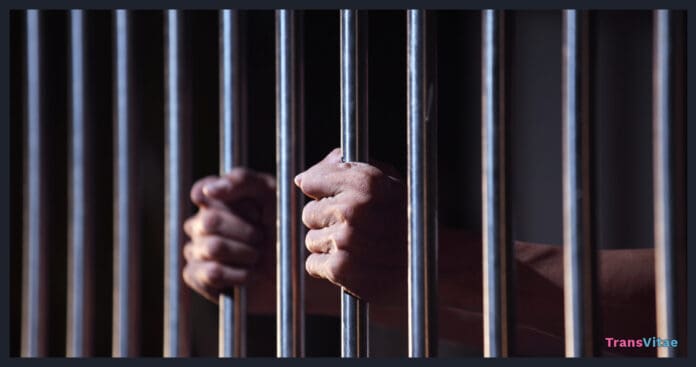In a temporary legal victory for transgender rights, a federal judge has blocked the Trump administration from enforcing its anti-trans prison policy against three transgender women currently housed in women’s facilities in federal prisons. The ruling, issued on Tuesday by U.S. District Judge Royce Lamberth, represents a critical pushback against an executive order President Donald Trump signed on his first day back in office.
A Policy Rooted in Discrimination
Trump’s executive order, part of a sweeping set of anti-LGBTQ+ actions, mandates that transgender women in federal prisons be housed in men’s facilities and prohibits the Bureau of Prisons (BOP) from providing gender-affirming care, including hormone therapy. The order effectively forces transgender women into dangerous and hostile environments, dismissing well-documented risks of violence, harassment, and sexual assault in men’s prisons.
The three plaintiffs, represented by attorneys from the National Center for Lesbian Rights (NCLR) and GLBTQ Legal Advocates & Defenders (GLAD), challenged the order, arguing that it constitutes unconstitutional sex-based discrimination and violates protections against cruel and unusual punishment under the Eighth Amendment.
During Tuesday’s hearing, Jennifer Levi, the plaintiffs’ attorney, emphasized the dire consequences of Trump’s policy:
“These women face a serious risk of violence and sexual assault in men’s facilities. This executive order is not about safety—it is a punitive attempt to erase transgender people and deny them basic dignity.”
A Judge’s Swift Action to Protect Trans Lives
Lamberth’s 11-page ruling granted a temporary restraining order (TRO), halting the immediate enforcement of Trump’s policy. The judge acknowledged the life-threatening risks posed by the executive order and ruled that the plaintiffs are likely to succeed in their constitutional claims.
“With respect to the transfer provision, the plaintiffs cited various government reports and regulations recognizing that transgender persons are at a significantly elevated risk of physical and sexual violence when housed in a facility corresponding to their biological sex—risks which the defendants do not dispute,” Lamberth wrote.
He further ordered that prison officials maintain the plaintiffs’ housing and medical care as they existed before January 20, 2025—the day Trump was sworn in for a second term and promptly signed the executive order.
Lamberth’s ruling is the second to challenge the order, following a Boston federal judge’s decision last week to block the transfer of another transgender woman. However, unlike the Boston case, Tuesday’s ruling in Washington, D.C., applies to all three plaintiffs and prevents broader implementation of Trump’s order—at least temporarily.
The Harm of Trump’s Order: A Dangerous and Unnecessary Move
The Trump administration has defended the policy, claiming that keeping transgender women in women’s facilities endangers cisgender female inmates and that gender-affirming care is an unnecessary expense. But the reality, as multiple studies and reports confirm, is that transgender women housed in men’s prisons face alarmingly high rates of physical and sexual assault.
The Bureau of Justice Statistics has repeatedly found that transgender inmates are more than ten times more likely to be sexually assaulted in men’s prisons compared to cisgender inmates. In light of these statistics, moving transgender women into male facilities is not about safety—it is a targeted effort to dehumanize and endanger them.
Furthermore, denying gender-affirming care violates established medical guidelines. The American Medical Association and the World Professional Association for Transgender Health (WPATH) recognize hormone therapy and other gender-affirming treatments as medically necessary. Blocking access to this care puts incarcerated transgender individuals at heightened risk of severe psychological distress, depression, and suicidality.
An Attempt to Punish Trans People for Existing
Trump’s order is part of a broader agenda to erase legal protections for transgender people. From attempting to reinstate the transgender military ban to pushing anti-LGBTQ+ policies in education and healthcare, his administration has consistently attacked trans rights.
The plaintiffs in this case, like many transgender individuals in the prison system, have already faced significant hardships. They had been housed in women’s facilities for months or years, adjusting to an environment where they felt safer. But as soon as Trump signed the order, they were forcibly removed from the general prison population, segregated, and told they would soon be transferred to men’s prisons.
“They were terrified at the prospect of these transfers,” Levi told the judge. “There is no way to keep these women safe outside of a women’s prison.”
The judge agreed, stating that the public interest in immediately transferring the plaintiffs was “slight at best”, while the harm to the plaintiffs would be catastrophic.
What Comes Next?
While Tuesday’s ruling is a temporary victory, it does not permanently overturn the executive order. The case will now proceed to further litigation, where the judge will make a final ruling on whether Trump’s policy is unconstitutional.
Legal experts believe the plaintiffs have a strong case. The Eighth Amendment prohibits “cruel and unusual punishment,” and forcing transgender women into violent, unsafe environments and denying them medically necessary care could be deemed a clear violation.
However, the Justice Department has already signaled that it will continue to fight for Trump’s order. Attorney John Robinson argued in court that prison officials should have “broad discretion” over inmate placements and that “no medical care has been denied yet.”
But Levi and other trans advocates see this case for what it is: a thinly veiled attack on transgender lives.
“This order is not about safety, security, or fairness,” Levi said. “It’s about punishing transgender people for existing.”
The Bottom Line
This case is a reminder that trans rights in America remain precarious. The Trump administration has made it clear that transgender people are in their crosshairs—whether in prisons, schools, the military, or healthcare.
Trans people, allies, and advocacy organizations must remain vigilant. Supporting legal efforts like those of NCLR and GLAD, contacting elected officials, and speaking out against anti-trans policies are essential steps in ensuring that this injustice is not allowed to stand.
For now, the judge’s ruling offers hope and protection for the three transgender women who bravely fought back. But the fight is far from over.


